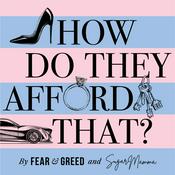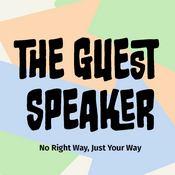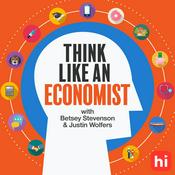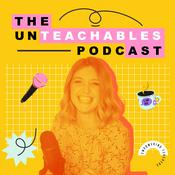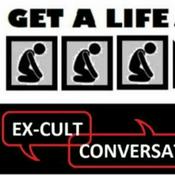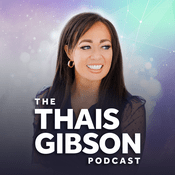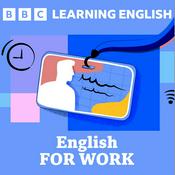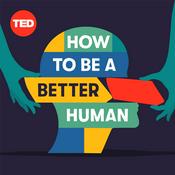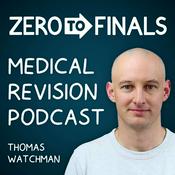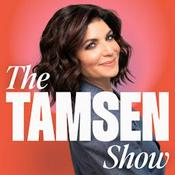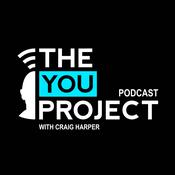37 episodes
- Show Notes
In this episode, I share my proven strategies for staying on track with your low carb lifestyle while traveling. Whether you're camping, road-tripping, or flying overseas, I'll show you how to avoid holiday weight gain, prevent bloating, and return home feeling energised - not defeated. Learn how to set realistic goals, prep smart before you leave, make the best food choices on the road, and hit the ground running when you get back home.
What You'll Learn
How to set clear intentions before your trip so you stay committed to your goals
The critical prep work to do before leaving that sets you up for success when you return
Smart low carb food options for road trips, camping, and air travel
The "Last Day Rule" strategy for enjoying treats without derailing your progress
Why hydration is your secret weapon for avoiding bloating and staying energized
My favorite protein-packed travel foods including dehydrated meals and portable options
How to get back on track immediately after your holiday—without waiting for Monday
Key Moments
Setting Your Holiday Intention - I explain why deciding your goal (maintenance vs. continued weight loss) before you pack is the most important strategy of all. The 80-20 formula works well for maintenance, while weight loss requires more discipline with meal planning and food prep.
Pre-Holiday Food Prep - I share why preparing 1-2 meals before you leave is essential for every trip. Having low carb wraps, lasagna portions, or other meals in your freezer means you can stay on track from the moment you walk through the door, especially when dealing with jet lag or exhaustion.
Low Carb Options on the Road - From protein bars and beef jerky at petrol stations to planning your protein sources in advance, I cover practical solutions for staying fueled without compromising your goals while traveling.
The Last Day Rule - Save special treats for your final day of vacation. This gives you something to look forward to while keeping you on track for most of your trip, and you head straight home afterward with no chance to repeat the indulgence.
Water as Your Secret Weapon - I emphasize why staying hydrated (2-3 liters daily) prevents bloating, headaches, and false hunger signals. Dehydration causes fluid retention, which is exactly what we don't want while traveling.
Camping and Remote Travel Solutions - I recommend dehydrated keto meals (like Radix in New Zealand), canned proteins, protein powder, and low-carb pasta alternatives that are portable and don't require refrigeration.
Coming Home Strong - Don't wait until Monday to restart your plan. Get back on track the day after you return by using your prepped meals, restocking fresh food within 24 hours, and immediately returning to your low carb routine.
One Action You Can Do to Start Now
Before your next trip, prep and freeze 2-3 low carb meals. This single action ensures you won't sabotage your progress in those crucial first 24-48 hours after returning home. Choose simple options like low carb lasagna, soup portions, or pre-made wraps that you can pull from the freezer and reheat. Having these meals ready eliminates decision fatigue, removes the temptation to order takeout, and keeps you in momentum with your weight loss goals from the moment you walk through your door.
Products mentioned in this episode:
Radix Nutrition keto dehydrated meals - Show Notes
Ever felt pressured to eat holiday food you don't want? You're not alone. In this episode, I'm sharing exactly how to handle food pushers during the festive season while staying on track with your weight loss goals and low carb lifestyle.
I've maintained my 30 kilo weight loss for 25 years, and I've learned that the holidays aren't just about managing your relationship with food-they're about navigating everyone else's expectations too. Whether it's family gatherings, Christmas parties, or work celebrations, you'll discover practical strategies to set boundaries without damaging relationships or feeling guilty.
If you're trying to lose weight during the holidays, this episode gives you the exact words to say, mindset shifts to make, and strategies to use so you can stay in control and enjoy the festive season on your terms.
What You'll Learn
Why family and friends push food on you (and why it's usually coming from love)
5 polite ways to decline food without offending anyone or making excuses
The power of deciding in advance what you'll eat - so you stay in control
Mindset shifts that make saying no to holiday treats easier
How to use low carb alternatives to make festive eating enjoyable
Why self-compassion beats self-criticism if you slip up
Planning strategies to set yourself up for success at holiday events
Key Moments
The Holiday Food Pressure Problem
Understanding why hosts and family members push food—it's about love, validation, and cultural connection, not sabotage.
Your Ready-to-Go Responses
Practical phrases you can use when someone insists you eat: from gracious declines to honest boundary-setting to strategic white lies.
Changing Your Internal Dialogue
The mindset shifts that helped me navigate 25 years of festive seasons while on this journey: reminding yourself it's your choice, remembering you've had it before, and focusing on temporary pleasure versus long-term consequences.
Low Carb Alternatives Make It Easier
How having delicious low carb options available makes saying no to sugary treats much simpler.
Planning for Success
Simple strategies like eating before events, finding a supportive friend, and knowing when to leave early.
If You Slip Up
Why self-compassion is essential and how to get back on track immediately - not Monday, not tomorrow, but with your very next meal.
You're the Boss
The key principle: whether it's others or your own thoughts trying to convince you to eat, you decide. Staying in the power seat is what matters.
One Action You Can Do to Start Now
Think of 2-3 replies you can use for upcoming holiday situations where someone might push food on you. Write them down. Practice saying them out loud. Have them ready to go so you enter every festive event feeling confident and in control.
Bonus: Create a personal affirmation for those moments when you feel tempted. Something like: "It's a treat for 10 seconds in my mouth, but I have to deal with the consequences much longer. I choose to stay on track with my goals."
Next week's episode: How to Do Low Carb on Holiday
Remember: The only thing that's going to stop you reaching your goal is if you quit. Never, ever give up. - Show Notes
Struggling with low carb lunch ideas that keep you satisfied? Crashing hard at 3pm? In this episode, I'm sharing my simple lunch formula that has helped hundreds of women over 35 stay on track with their low carb weight loss journey.
I'll show you exactly why lunch is the hardest meal to master and give you my "lunch math formula" that eliminates decision fatigue. Plus, I'm sharing 20+ easy low carb lunch ideas for every situation—whether you're at work, at home, or on the go.
What You'll Learn
Why lunch is sabotaging your weight loss (even when breakfast and dinner are on point)
My 3-part lunch formula: Protein + Fat + Color that keeps blood sugar stable
How much protein you actually need at lunch to stay full all afternoon
20+ practical low carb lunch ideas for takeaway, meal prep, and zero-prep days
How to handle workplace lunch pressure and comments about your food choices
Why getting lunch right improves your entire afternoon, dinner choices, and sleep
Key Moments
Why Lunch Is Your Hardest Meal I explain why lunch consistently derails even successful low carb eaters—it's happening during your busiest, most unpredictable part of the day when decision fatigue peaks.
The Lunch Math Formula My game-changing formula: 20-30g protein + 2 servings of fat + color. I break down exactly what this looks like in real food portions.
20+ Low Carb Lunch Ideas Practical options for every situation—bunless burgers, Greek salads, tuna-stuffed avocados, egg bacon muffins, and zero-prep emergency meals.
The Domino Effect Why lunch is your highest-impact meal and how nailing it improves your afternoon energy, dinner choices, snacking habits, and sleep quality.
One Action You Can Do to Start Now
Choose ONE low carb lunch you really like and repeat it for as many days as you can this week.
Pick something simple—rotisserie chicken with a salad bag and half an avocado, or tuna with mayo in lettuce wraps. When you eliminate lunch decision fatigue, you'll notice less afternoon snacking, stable energy, more control, and money saved.
Remember: Success comes from preparation, not willpower.
LINKS:
➡️Download by FREE E-book with a 5-day Low Carb Meal Plan and 5 delicious dinner recipes: CLICK HERE
➡️Start losing weight on Monday with my 4-week Foundations of Fat Loss Programme, designed for the specific fat-burning needs of over 35's: FIND OUT MORE
➡️Continue your low carb journey with monthly Fat Loss Acceleration Protocols, resources, meal plans, delicious recipes, support and inspiration in Why Weight Academy: FIND OUT MORE
➡️Check out all my recipes and resources on the Why Weight Academy Website HERE
Follow me on TikTok: sheryltakayama
Follow me on Facebook: Why Weight Academy
Follow me on Instagram: sheryl_whyweightacademy
And if you enjoy this show, please leave a quick rating & review - your support is so appreciated and will mean the world to me! - Show Notes
Are you dreading the festive season bloating that comes with Christmas parties and summer celebrations? I get it! As someone who's maintained a 30 kg weight loss for 25 years on a low carb plan, I know exactly how challenging this time of year can be for your gut health and weight maintenance.
In this episode, I'm sharing my proven strategies to help you navigate the silly season without the uncomfortable bloating, digestive issues, and weight gain that typically accompany holiday eating. Whether you're following a low carb lifestyle, managing IBS symptoms, or simply want to feel comfortable in your summer wardrobe, these practical tips will help you enjoy all the festivities while keeping your gut happy.
I'll walk you through simple meal timing strategies, digestion optimization techniques, and the surprising foods that might be causing your bloating—even on a low-carb diet. Plus, I'm sharing my day-of-event game plan that will help you make confident food choices at Christmas parties, work functions, and family gatherings.
The best part? You don't need to restrict yourself or miss out on the celebrations. With just a few small tweaks to when, how, and what you eat, you can absolutely enjoy the festive season AND feel light, energized, and confident in your body. Your future self will thank you!
What You'll Learn
In this episode, I'm breaking down everything you need to know about keeping your gut happy through the festive season:
Understanding Bloating:
Why bloating happens more during the holiday season and what triggers it
How late-night eating affects your digestion and causes inflammation
The connection between alcohol, poor sleep, and gut health
Why your gut loves routine and how festive chaos disrupts it
Meal Timing Strategies for Better Digestion:
Why eating your largest meal earlier in the day is a game-changer for gut health
The four-hour rule between your last meal and bedtime (this is huge!)
How to plan around nighttime events and Christmas parties
Why digestion is strongest midday and weakest at night
Digestion Optimization Techniques:
The simple chewing technique that improves nutrient absorption
How apple cider vinegar wakes up your stomach acid for better digestion
Why drinking water before meals actually hurts your digestion
The five-minute post-meal habit that dramatically lowers blood sugar
Problem Foods for Bloating (Even on Low-Carb!):
High-FODMAP vegetables that can trigger IBS and bloating
Why avocado might be causing your digestive issues
The low-carb vegetables that are actually gut-friendly for summer
Common festive food triggers like wheat, gluten, and dairy
Smart Holiday Eating Strategies:
Why grazing all day prevents proper digestion
How to manage stress and inflammation during busy periods
The truth about alcohol and gut health (plus my "pick your moments" approach)
Hydration tips for reducing bloating when eating salty party foods
Your Day-of-Event Game Plan:
What to eat before arriving at holiday parties
How to navigate buffet tables without overeating
Simple positioning tricks to avoid mindless snacking
Post-event recovery strategies for your gut
Key Moments
The Festive Season Reality Check I talk about why November through January is the most challenging time for gut health and weight maintenance. Between work parties, family gatherings, and late-night celebrations, our bodies face rich foods, alcohol, and disrupted routines—all of which stress our digestive system.
Why You're Bloated: The Root Causes I break down the main culprits behind festive bloating: larger portions of rich, fatty foods, eating later than usual when digestion is weakest, alcohol consumption leading to inflammation and poor sleep, and the gut's disrupted routine during the holidays.
The Avocado Surprise Many of my low-carb clients are shocked to learn that avocado, while healthy, is actually high in FODMAPs and can trigger bloating in people with IBS. I explain why those chips and guacamole at parties might be behind your digestive discomfort.
Timing Is Everything I share my number one strategy for reducing bloating: eating your largest meals earlier in the day when digestion is strongest. I explain why lunch functions are better than dinners, and how leaving four hours between dinner and bedtime can transform how you feel.
The Digestion Optimization Toolkit I reveal simple techniques that most people overlook: chewing each mouthful 20-30 times, using apple cider vinegar before heavy meals, drinking water between meals (not before), and taking a short walk after eating to stabilize blood sugar.
The Vegetable Paradox This surprises everyone! I explain why some vegetables—even healthy, low-carb ones like cauliflower, Brussels sprouts, and kale—can cause significant bloating. I share which summer vegetables are gut-friendly alternatives.
Managing Alcohol During Festivities Instead of saying "don't drink," I share my realistic approach: pick your special moments and really enjoy them, rather than having small amounts at every occasion. Your liver needs alcohol-free time to focus on detoxing and fat burning.
The Day-of-Event Strategy I walk through my complete game plan for handling big events: eating balanced meals beforehand, surveying the buffet to make protein your priority, plating your food instead of grazing, and positioning yourself away from the food table.
The Reset Mindset I emphasize the importance of not mentally punishing yourself after a celebration. If you're not overdoing it frequently, the impact is minimal. The goal is enjoying yourself while keeping your pants comfortable!
Your One Action to Start Now I challenge you to implement the four-hour rule—leaving at least four hours between dinner and bedtime. This single change will help your digestion year-round, but it's especially powerful during the festive season when your body needs extra support.
One Action You Can Do to Start Now
Out of everything I've shared in this episode, here's the one action I want you to focus on: Really take notice of how you feel when you lie down at night.
Starting today, I want you to implement the four-hour rule - leave at least four hours between your last meal and bedtime. Give this a go and pay attention to how different your body feels.
This isn't just a festive season hack. This is something that's going to help you all year round. But if you can start being intentional about this now, your body is going to appreciate it so much more during this challenging time of year.
When you go to bed feeling light with your food fully digested, you'll not only improve your digestion and reduce bloating, but you'll also sleep better. And when you sleep better, you'll have much better control over your appetite the next day. It's a positive cycle that starts with this one simple timing adjustment.
Try it tonight. Notice the difference. Your gut (and your summer wardrobe) will thank you! - Show Notes
Are you struggling with constant food thoughts and emotional eating? Do you find yourself thinking about food from the moment you wake up until you fall asleep? In this episode, I'm sharing the exact three-step framework I taught hundreds of women in my recent "Fix the Food Noise" challenge.
If you've been battling food cravings, stress eating, or binge eating urges, this episode is your roadmap to food freedom. I'll walk you through practical mindset strategies for weight loss that you can implement immediately.
These simple emotional eating solutions have helped women break free from the constant mental chatter about food and finally experience what it feels like to have control over their eating habits. Whether you're dealing with nighttime snacking, mindless eating, or sugar cravings, these three steps will help you rewire your relationship with food.
What You'll Learn
✓ Why constant food thoughts aren't about willpower – Learn the real reason your brain keeps pulling you toward food and how to break the cycle of emotional hunger
✓ The difference between physical hunger vs emotional hunger – Understand how to identify true hunger signals versus stress eating triggers so you can make better food choices
✓ The 60-second Pause Protocol – A simple pattern interrupt technique that stops automatic hand-to-mouth eating and gives you back control over your food decisions
✓ How emotional granularity reduces cravings – Discover why naming your emotions (bored, stressed, lonely, tired) actually tames them and reduces the urge to eat
✓ The 5-Minute Redirect strategy – the rescue plan for breaking the food trance when emotional eating urges strike, including body shaking, grounding techniques, and distraction methods
✓ Why low-carb eating stabilizes blood sugar – Understand how balancing your blood sugar makes it dramatically easier to overcome food addiction and reduce hunger
✓ The Post-It Note trick – A brain retraining method that interrupts mindless snacking and helps you build awareness before eating
✓ How to rewire your brain's response to uncomfortable emotions – Learn why your subconscious uses food to cope and how to teach it healthier alternatives for emotional regulation
Key Moments
Understanding Food Noise
The constant voice in your head about food isn't about lack of willpower—your brain has been wired to use food as the solution to every uncomfortable feeling
You can rewire this pattern with three simple steps that take just minutes
The Foundation: Low-Carb Eating for Blood Sugar Balance
Balanced blood sugars eliminate the blood sugar roller coaster that drives constant hunger
Low-carb eating is the physical solution; mindset strategies are the mental solution
Step 1: Awareness - Becoming a Detective, Not a Judge
Physical hunger comes on gradually with stomach sensations; emotional hunger strikes suddenly and craves specific comfort foods
Most snacking is driven by emotional hunger and habit, not true physical hunger
Step 2: The Pause Protocol - Your 60-Second Circuit Breaker
Stop, close your eyes, and take two deep breaths before eating anything
Name your emotion specifically (bored, stressed, lonely, tired)—emotional granularity helps your subconscious feel heard and tames the emotion
Use Post-It notes with "PAUSE" on your fridge and cupboards as visual reminders
Step 3: The Redirect - Breaking the Food Trance
If it's emotional hunger, use the 5-Minute Redirect: shake your body, orientate yourself with the 3-3-3-3 technique (look at 3 things, touch 3 things, smell 3 things, listen for 3 sounds)
Do any 5-minute activity to redirect away from food thoughts—keep a list of activities ready to go
Why This Works
You're teaching your brain there are other ways to process emotions besides eating
Every time you successfully redirect, you strengthen your ability to do it next time
The ONE Action You Can Do to Start Now
Get three Post-It notes and write the word "PAUSE" on them.
Place them strategically:
One on your fridge
One on your cupboard
One on the pantry or snack box where you typically grab food
This simple visual reminder will start retraining your brain to pause before eating. When you see that note, take your two breaths, notice what you feel, and remember you always have a choice.
Once you start pausing, everything else becomes possible—the orientation, the redirect, all of it. But if you don't pause, you're still on autopilot.
Food noise does not have to control you anymore. You've got the tools. Now it's time to start using them.
Resources & Links
CLICK HERE to find out more about the 5-day Fix Food Noise Programme.
This is your roadmap from constant food obsession to food freedom. With daily guided videos, an actionable workbook, and 50+ redirect strategies, you'll learn exactly how to pause, identify emotional hunger, and rewire your brain's response to uncomfortable feelings - so you can finally stop using food as your go-to coping mechanism.
More Education podcasts
Trending Education podcasts
About Why Weight? Start Now!
If you are ready to get off the crazy diet wagon and find a way of eating and a way of thinking that WORKS, come and join Sheryl each week for practical advice, tips and a boost of motivation, so you START NOW and nail your goals 🥳
Podcast websiteListen to Why Weight? Start Now!, The Daily Stoic and many other podcasts from around the world with the radio.net app
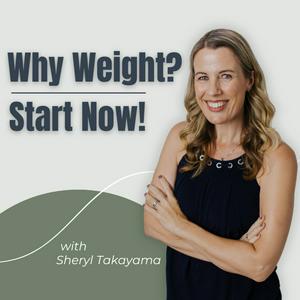
Get the free radio.net app
- Stations and podcasts to bookmark
- Stream via Wi-Fi or Bluetooth
- Supports Carplay & Android Auto
- Many other app features
Get the free radio.net app
- Stations and podcasts to bookmark
- Stream via Wi-Fi or Bluetooth
- Supports Carplay & Android Auto
- Many other app features


Why Weight? Start Now!
Scan code,
download the app,
start listening.
download the app,
start listening.














